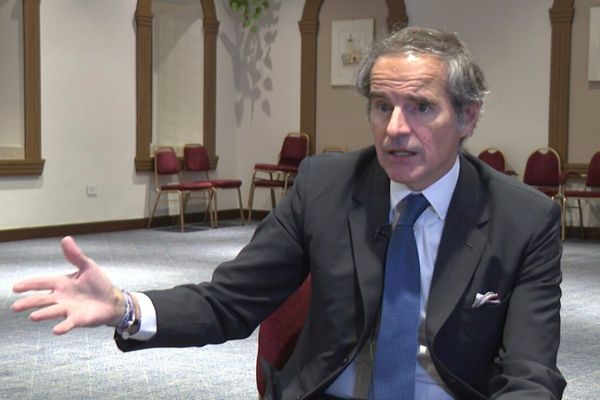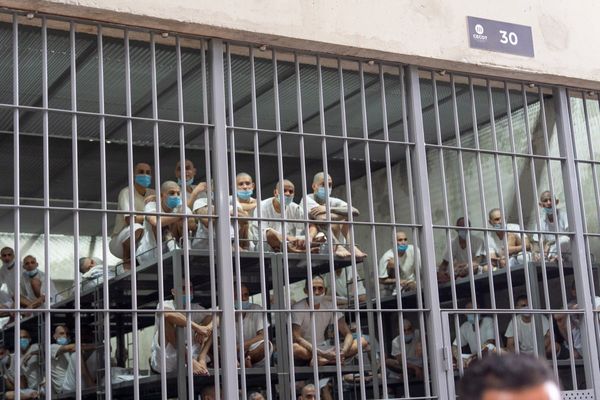
The US secretary of defense, Pete Hegseth, may not be the sharpest tool in President Trump’s tool kit. But, in the great American tradition, he is a top hustler. In an arrogant display that would have won Trump’s approval, Hegseth blustered his way around the Shangri-La conference in Singapore’s clammy weather last week in what resembled an ugly American charm offensive. He omitted tariffs, though these were front of mind for everyone else.
He told regional leaders that they bludged off America’s generosity, getting security on the cheap and leaving it to America to do the heavy lifting of containing China by maintaining the strategic balance – whatever that might be. All they needed to do was invest much more in defence to help the US maintain its primacy. And behind his shrill calls for more money on bombs and their delivery systems was a growing US alarmism directed at China.
Provocation is never a substitute for diplomacy, as any sharp player knows.
Hegseth spoke about the imminence of the China threat. America may well need an enemy to define its ambition and to sustain its sense of insecurity. But the question is: do we? The countries of south-east Asia have made their position pretty clear: they just do not believe it. Nor do they want to get sucked into a contest between titans. As the proverb has it, “when elephants are dancing, grasshoppers get out of the way”.
Hustlers evidently do not appreciate irony. Notwithstanding the claims of massive increases in China’s defence spending, it runs a defence budget that hovers around 1.7% of GDP, compared with America’s 3.4%. In dollar terms, China spends around USD 300bn per annum. America spends around USD 900bn, accounting for about 40% of global arms spending.
These expenditures dwarf everyone else’s. In the US case, they contribute to a deficit overhang bigger than its GDP. For our part, without any additional defence spending, we are already the 12th largest contributor to the global industrial-military complex.
It should not have been a surprise that Australia’s defence minister, Richard Marles, like other regional defence leaders, found himself cornered at Shangri-La. Marles, whose exposure to knucklers is limited to the polite exchanges for which ALP factional leaders are renowned, might have thought that he had to accommodate Hegseth’s demand that Australia ramp up its defence spending to 3.5% of GDP forthwith – almost double our present defence budget.
Inveterate verbalist that he is, Marles was not going to be badgered into submission. He did not agree to a figure, but he did agree to Hegseth’s arguments, saying that Australia would consider the proposal.
In the bracing temperatures of Hobart, however, Anthony Albanese had other ideas. In sharply defined comments that might have been channelling John Howard’s “we will decide who comes to this country” a quarter of a century ago, Albanese proclaimed that Australia would determine its defence budget for itself and decide on what capabilities Australia needs. Albanese went further and cut to the heart of the problem: setting an arbitrary rate – a percentage of GDP – is no way to calculate budget priorities.
As prime minister, Albanese presides over the cabinet that assesses the competing bids of portfolio ministers – health, education, childcare, aged care, redressing inequality, defence and the rest. He knows better than anyone that there are only three ways to increase expenditure: raise taxes; cut services; increase debt, or a bit of each.
He also knows that the Australian economy is in structural deficit, as treasury secretary Steven Kennedy pointed out just last week. Pressures on the commonwealth and state budgets are climbing, with stewardship becoming an increasingly key indicator of government performance.
Albanese understands that setting arbitrary spending targets, rather than balancing needs, priorities and resources, only encourages the fattening of sacred cows and the bloating of pork-barrels. As he pointed out, the government has provisioned an additional $10bn for defence over the forward estimates, with the eye-watering costs of Aukus looming over future budgets for future governments.
As it heads into Australia’s48th parliament, the government finds itself caught in the cleft stick of an increasingly fluid international scene and growing economic headwinds, due in no small measure to the US. Throwing money around at fears – rather than allocating it judiciously to needs – does not reward the voter confidence that the government’s massive majority would indicate.
Let us all hope that Albanese can maintain his poise and resist the strident calls for military boosterism.
• Allan Behm is the author of No Enemies, No Friends and The Odd Couple (both by Upswell). He is a special adviser at the Australia Institute







